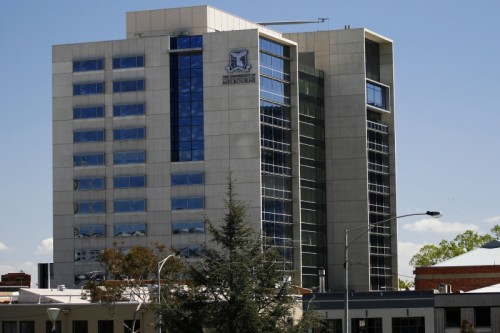World university rankings 2009
MELBOURNE University and Monash University are among the eight Australian universities to make it to The Times Higher Education – QS World University Rankings 2009 top-100 list.
Melbourne University climbed two positions from the previous year to tie with University of Sydney at 36.
Monash university also climbed up two places to 45th.
The University of Adelaide made the greatest improvement, breaking into the top-100 list by jumping 25 places to become number 81 this year.
The Australian National University was the only Australian university to make it to the top 20, despite slipping a place to 17th in a position swap with Stanford University.
The other Australian universities to make the list were the University of Queensland (41), the University of New South Wales (47) and the University of Western Australia (84).
The top ten rankings were dominated by the US and Britain’s elite universities – with Harvard University in first place followed by Cambridge University, Yale University, University College London, Imperial College London, Oxford University, the University of Chicago, Princeton University, Massachusetts Institute of Technology, and the California Institute of Technology.
But Australia was ranked third overall, with more universities in the top-100 list compared to any country apart from the US and Britain.
The rankings were calculated from data collected across categories including academia peer review, employer review, international faculty and international student ratios, student faculty ratio and citations per faculty.
But do rankings really matter?
Australian Universities Quality Agency executive director Dr David Woodhouse said the rankings were unhelpful and highly inaccurate.
“They are based on an arbitrary set of measures on a set of weightings. By presenting them as definitive and authoritative, it leaves no room for subjectivity of what a good university ought to be,” Dr Woodhouse said.
“Although QS rankings are based on peer review, it devalues the accuracy of their reponses when it comes to nominating the reputation of one’s respective university. Generally, individuals do recognise lead universities such as Harvard and Oxford, but those universities may only be niche on particular areas of studies.”
He said high international student ratios showed an institution was popular overseas, but did not factor in the reasons behind its attractiveness.
“Australia for example, remains highly attractive to international students because of its location and the ease with which one can attain a permanent residency according to the length of time one resides within Australia,” Dr Woodhouse said.
In a statement, QS managing director Nunzio Quaquarelli said rankings were contentious, but useful to employers, academics, parents and students.
“Governments and universities around the world are investing to increase their profile and recognition on the international stage, as higher education becomes an increasingly global industry.
“Today the rankings are used by employers identifying from where to recruit, academics choosing where to work and with whom to form partnerships, and by parents and students looking to make a sound education decision.”
Second year international commerce student at Melbourne University, Ruwan Ponniah, said his university was highly regarded for its commerce degree in South East Asia.
“So long as the university is known for delivering graduates who can do the job and do it well, the exact ranking of that university does not really matter,” he said.
